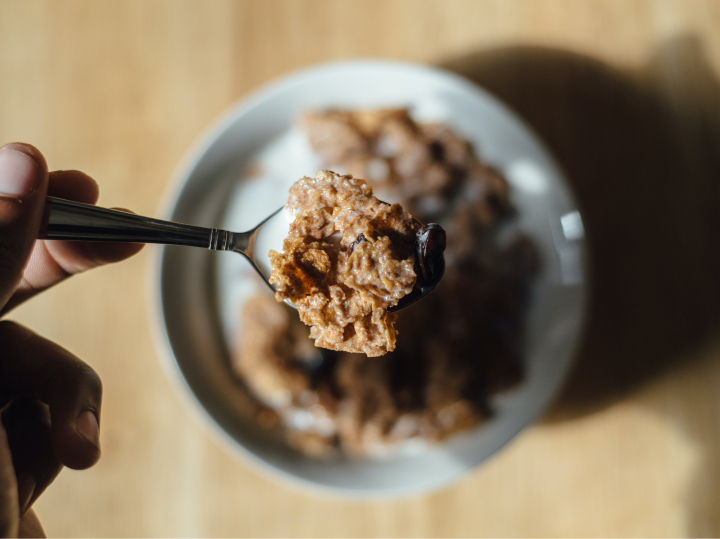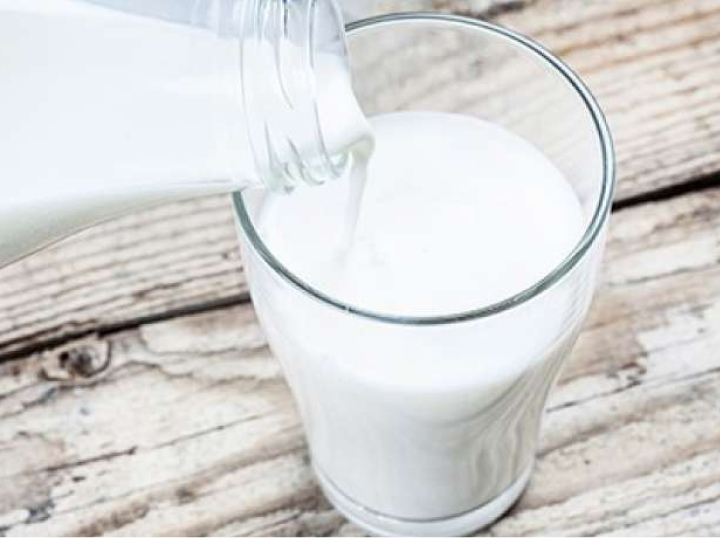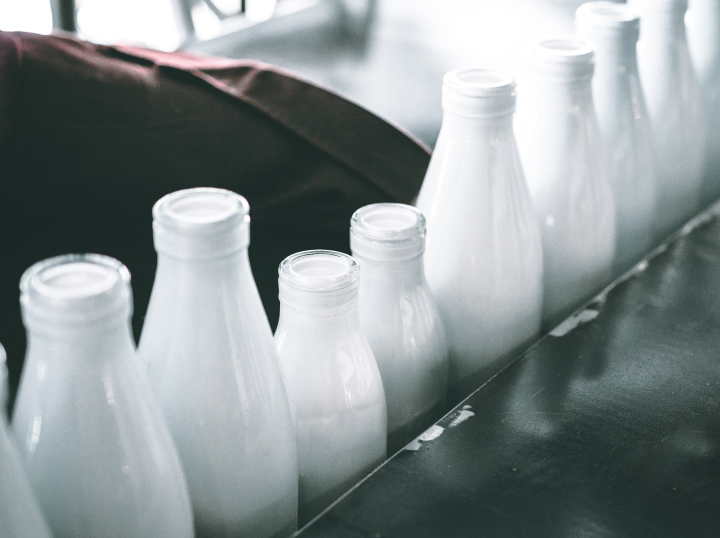How Dairy Milk Can Help You Recover And Replenish After A Workout
By Pro Basketball Player and Registered Dietitian
Briana Butler
My days as a year-round professional athlete were defined by so many conflicting feelings. Yes, I felt perpetually exhausted, drenched, and depleted, but at the end of the day, I couldn’t wait to get up and do it all over again. My mind must’ve missed the memo that I needed to take time to recover, because all I wanted to do was dedicate 100% of my energy to the game I loved.
These days, I’m a professional sports dietitian and I know exactly what I need to do to make sure my physical energy always matches my will and drive. When it’s time to take a break and recover, I always reach for my go-to powerhouse beverage: dairy milk. Nutrient-dense and always delicious, the original sports drink is the “secret sauce” that helps me refuel after strenuous activity. Milk always helped me recover when I was an athlete, and all these years later, it still never lets me down. Here’s why.

Let’s talk protein
When it comes to recovery, there’s one nutrient that you should always keep top of mind: protein. Dairy milk provides a complete protein, meaning it contains all of the essential amino acids. An eight-ounce glass of dairy milk contains eight grams of natural, high-quality protein and that protein is composed of 20% whey and 80% casein, to be exact. Both varieties support recovery after exercise, helping to build muscle and maintain lean muscle mass.
Whey protein is considered the “fast-acting” protein because your body can digest it quickly, which allows your muscles to reap the benefits right away. While casein protein is considered a “slow” protein, meaning our bodies digest it a bit slower, providing amino acids at a more gradual rate.
The bottom line? Dairy milk sets itself apart by supporting your nutritional needs right after training and long after you finish exercising.
Milk helps you bounce back!
During an intense exercise session, your muscles are subjected to varying levels of damage that can leave you feeling sore for days afterwards, thus reducing your performance capacity. Fortunately, research shows that drinking milk after a tough workout helps reduce exercise-induced muscle damage compared to sports drinks or water and can help you recover faster. You’ll be back in the game before you know it!
As I said, the whey protein in milk is high-quality protein, and it helps ignite the crucial repair and adaptive remodeling process. Moreover, vitamin D, one of milk’s 13 essential nutrients, is important for muscle function. So, whether you’re training or just exercising, dairy milk is an essential tool in your recovery toolkit.
Milk for muscle growth
Since training stimulates muscle building and growth, your window for muscle adaptation and recovery begins the second your workout ends. Fueling your body with dairy milk right after a workout (and throughout the day) can help you meet your daily protein needs and optimize muscle recovery. Talk about a win-win.
Milk’s amino acid profile contains approximately 10% leucine, which is highly touted as an anabolism ignitor. In layman’s terms, it puts your body on the fast track towards muscle recovery. Research suggests consuming 2–3 grams of leucine (among other amino acids) can help jumpstart the muscle protein synthesis process after a training session. By simply adding a cup of dairy milk to your post-workout smoothie, you’ll give your body nutrients it needs to recover.
Consuming protein-rich meals after training also aids in bolstering muscle growth. Aim for meals that contain about 20–40 grams of protein, since they may help improve strength and muscle hypertrophy if eaten three to four hours after exercise. In other words, these meals can help you build the lean muscle mass that’s coveted by athletes like me.
Milk for energy stores and rehydration
Let’s talk energy stores. During exercise, our body burns carbohydrates as a source of fuel that are stored in what we call glycogen stores, and we need to replace those carbs. Dairy milk contains 12 grams of carbohydrates per serving, which can help replenish the carbs in those glycogen stores.
As an added benefit, milk contains natural electrolytes and consists of 90% water. No wonder research suggests it’s better than most formulated sports drinks (and even water!) when it comes to rehydration. Most athletes lose a lot of fluid and electrolytes through sweat when they’re training, and that can have detrimental effects on recovery and future training sessions. My advice? Reach for a glass of dairy milk after your workout to rehydrate.
Milk – The OG Sports Drink
Through my experience as an athlete and a sports dietitian, I’ve seen the benefits of milk’s 13 essential nutrients firsthand. If you ask me, the most effective recovery routines include a glass of dairy milk (white or chocolate). Try it out yourself and you’ll quickly see why dairy milk will always be the OG sports drink. Trust me on this one!




